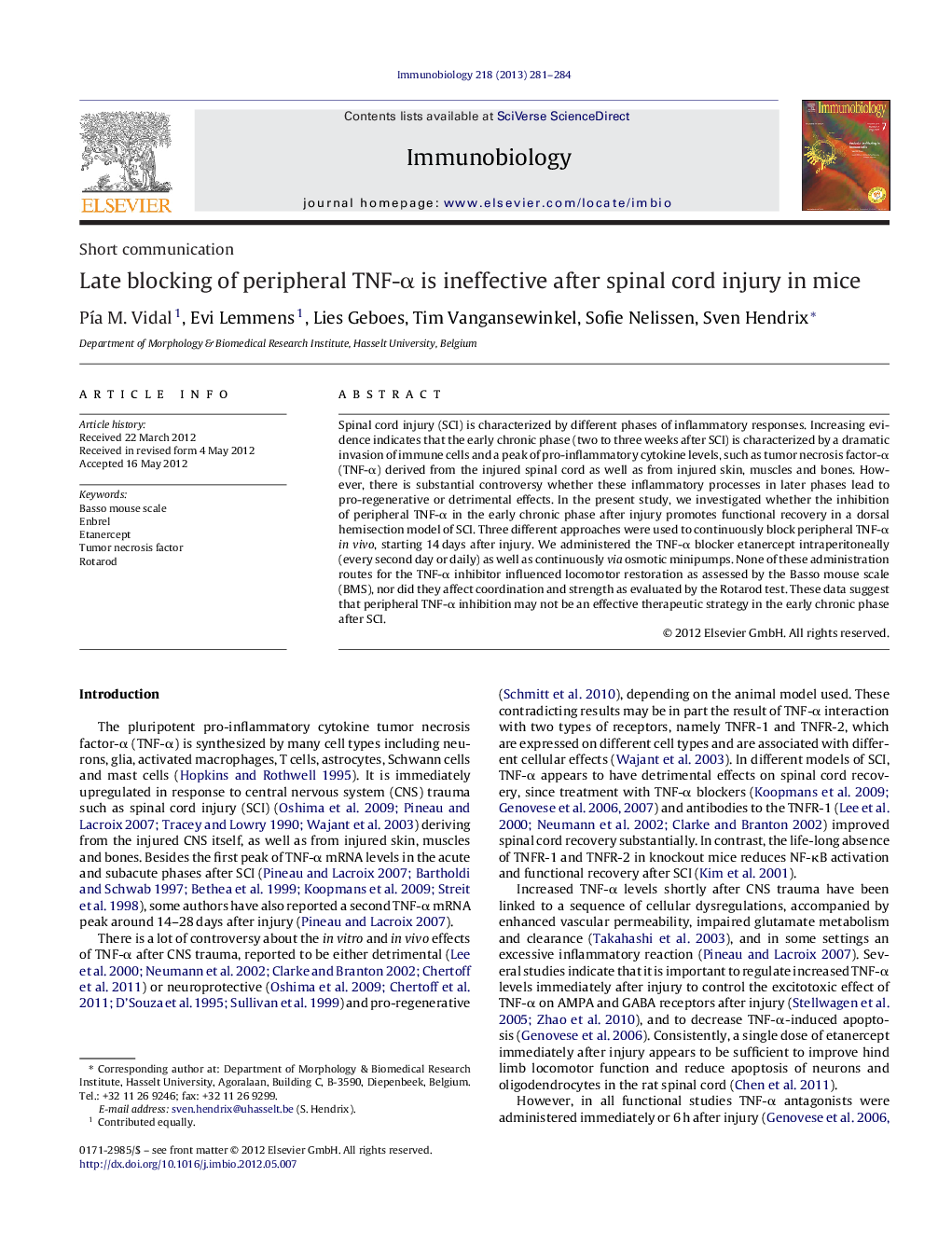| کد مقاله | کد نشریه | سال انتشار | مقاله انگلیسی | نسخه تمام متن |
|---|---|---|---|---|
| 2183228 | 1095556 | 2013 | 4 صفحه PDF | دانلود رایگان |

Spinal cord injury (SCI) is characterized by different phases of inflammatory responses. Increasing evidence indicates that the early chronic phase (two to three weeks after SCI) is characterized by a dramatic invasion of immune cells and a peak of pro-inflammatory cytokine levels, such as tumor necrosis factor-α (TNF-α) derived from the injured spinal cord as well as from injured skin, muscles and bones. However, there is substantial controversy whether these inflammatory processes in later phases lead to pro-regenerative or detrimental effects. In the present study, we investigated whether the inhibition of peripheral TNF-α in the early chronic phase after injury promotes functional recovery in a dorsal hemisection model of SCI. Three different approaches were used to continuously block peripheral TNF-α in vivo, starting 14 days after injury. We administered the TNF-α blocker etanercept intraperitoneally (every second day or daily) as well as continuously via osmotic minipumps. None of these administration routes for the TNF-α inhibitor influenced locomotor restoration as assessed by the Basso mouse scale (BMS), nor did they affect coordination and strength as evaluated by the Rotarod test. These data suggest that peripheral TNF-α inhibition may not be an effective therapeutic strategy in the early chronic phase after SCI.
Journal: Immunobiology - Volume 218, Issue 2, February 2013, Pages 281–284